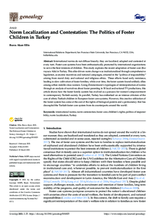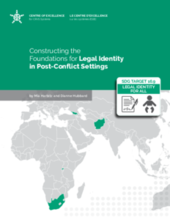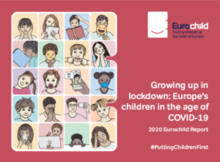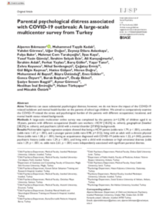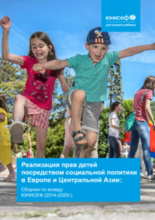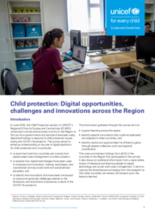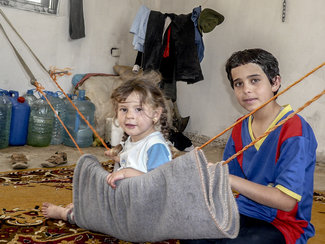

Displaying 21 - 30 of 177
This study explores the recent adaptation of foster care (Koruyucu Aile) in Turkey.
This paper aims to contribute to the achievement of Target 16.9 under Sustainable Development Goal 16 by analyzing the role of the civil register and the legal underpinnings for identity in four countries: Afghanistan, Georgia, Rwanda, and South Africa. It describes institutional and operational models in each country that support universal registration of births, deaths, and other vital events.
This report reflects on the effects of the coronavirus pandemic on children. It compiles information gathered from 25 countries across Europe, and provides recommendations for improving public policies in the short and long-term to support better outcomes for children and families, including children in alternative care or at risk of separation.
The authors of this study aimed to comparatively examine the COVID-19 related stress and psychological burden of parents with different occupational, locational, and mental health status related backgrounds in Turkey.
This Russian language Compendium documents UNICEF’s social policy interventions in Europe and Central Asia from 2014-2020 and includes 18 case studies from 15 different countries as well as stories from the field.
This report presents findings from a survey conducted across the Europe and Central Asia Region which aimed to enhance understanding of the use of digital platforms for child protection.
Researchers are increasingly using self-report measures of physical, psychological, and sexual violence and neglect for population-based surveys. The current gold-standard measure, the 45-item ISPCAN Child Abuse Screening Tool has been used across the world. This study assesses its adequacy for measuring abuse across countries.
This study aims to elucidate child welfare workers’ resilience and coping styles.
In this webinar, The Alliance for Child Protection and Humanitarian Action hosts a discussion on Version 2 of the Technical Note for the protection of children during the COVID-19 pandemic.
This article describes a policy adoption case study about deinstitutionalization of childcare in Georgia since independence. It highlights the evolving and non-homogeneous nature of transnational agency in the area of childcare deinstitutionalization, and offers insights into the complex relationship between transnational agency and national policymaking.

